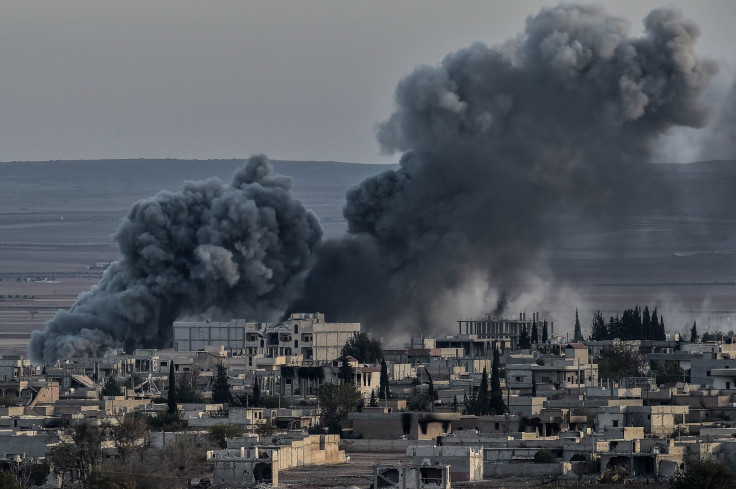Key ISIS Leader Tariq Al-Harzi Killed In US Airstrike In Syria

A U.S. drone strike in Syria has killed a senior leader of the Islamic State group, the Pentagon said Thursday. Tariq bin Tahar al-'Awni al-Harzi was responsible for recruiting foreign fighters, securing arms and raising funds for the militant group.
Al-Harzi, a Tunisian, was killed on June 16, a day after his younger brother Ali Awni al-Harzi died in a U.S. airstrike in Mosul, Iraq. The U.S. State Department called al-Harzi the “emir (leader) of suicide bombers,” the Wall Street Journal reported.
"His death will impact ISIL's ability to integrate foreign terrorist fighters into the Syrian and Iraqi fight as well as to move people and equipment across the border between Syria and Iraq," said Capt. Jeff Davis, a Pentagon spokesman, using an acronym for the Islamic State group, according to the Journal.
Al-Harzi oversaw the Islamic State group’s operations beyond Iraq and Syria. He reportedly facilitated the movement of foreign fighters from Europe to Turkey and eventually Syria, and also arranged suicide bombing attacks in Iraq.
Four airstrikes were launched the day al-Harzi died according to the military joint task force organizing operations in Iraq and Syria, the Associated Press reported. The attacks near al Hasakah town in north-eastern corner of Syria struck an Islamic State group tactical unit, damaging a vehicle and two antenna arrays.
In July 2013, al-Harzi was freed from Abu Ghraib prison in Baghdad, Iraq, during a raid by Islamic State group fighters, CNN reported. He was reportedly added to the U.S. Designated Terrorist List in 2014.
In May, the State Department’s Rewards for Justice program offered a $3 million reward for information on al-Harzi. According to his profile on the Rewards for Justice website, he arranged for a $2 million deal with a Qatar-based Islamic State group financial facilitator, and helped with fundraising efforts in Qatar.
© Copyright IBTimes 2025. All rights reserved.






















